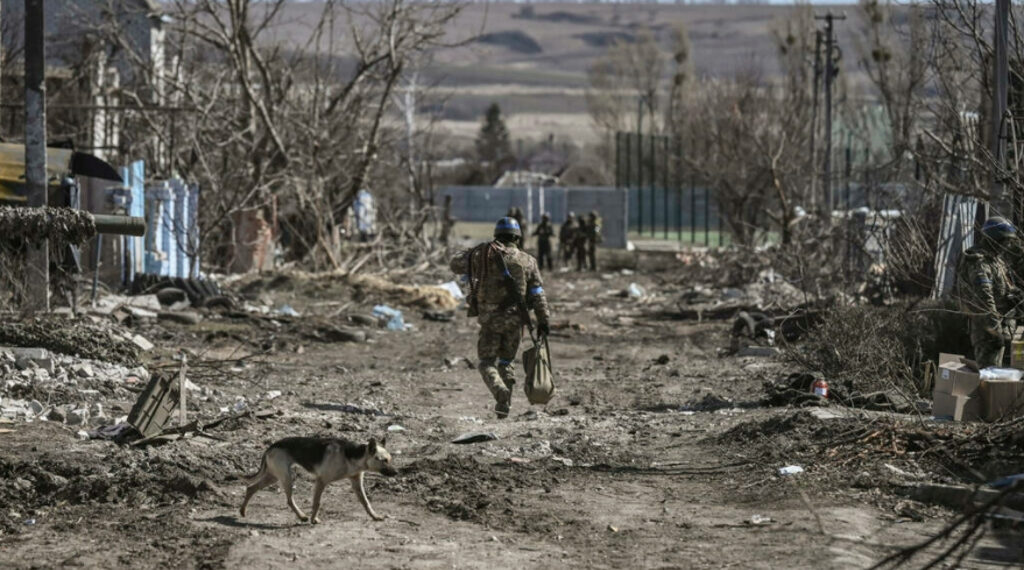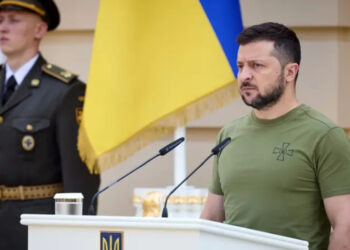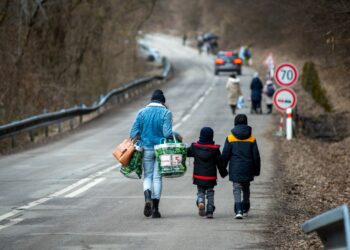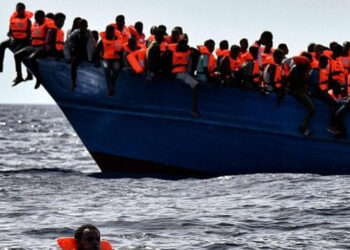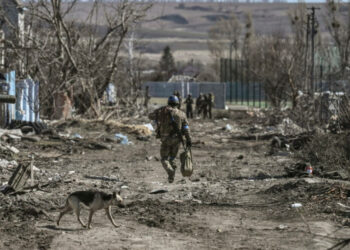The Russian invasion of Ukraine has already forced more than three million people to flee to Poland, Hungary, and other member countries of the European Union.
Across Europe, many of these refugees are being welcomed with compassion, with governments opening their borders and establishing emergency refugee reception centers, while private citizens are mobilizing to provide food, transport, and a place to stay.
But a significant number of those fleeing the violence are people who do not fit the “white, blonde, blue-eyed, Slavic” type from “middle-class and Christian backgrounds,” as breathless Western media reports tend to describe the majority of the refugees.
Watching people of color being harassed and turned away with violence by border guards and the Ukrainian military is a stark reminder of how Western countries have historically used a combination of harsh policies, including direct violence, to deter the arrival of refugees and migrants from the Global South — people who also were fleeing armed conflicts in Syria, Afghanistan, and Iraq, as well as other forms of violence and persecution.
Border Politics
For the past decade, I have been studying the border politics of forced migration and refugee reception in the international system.
I have met with doctors, lawyers, engineers, professors, journalists, musicians, students, and yes, people from economically and ethnically disenfranchised backgrounds, and those without formal education from Afghanistan, Syria, Myanmar, Haiti, Honduras, Nepal, Palestine, Haiti, Guatemala, and Pakistan who were forced to flee extreme violence, political instability, persecution, and war.
Their stories of trauma, fear, grief, loss, and hope capture the breadth and complexity of the human experience with forcible displacement.
However, on account of the simple fact that the Global South absorbs a staggering 85 percent of the world’s forcibly displaced, millions of people like them will never find sanctuary in the Global North.
And while it is heartening to see the warm welcome that many Ukrainians are receiving in Europe, the accolades should be tempered by the fact that Syrians, Afghans, Eritreans, and many others from the Global South who are considered to be undesirables, have not – and will not – be recipients of the same benevolence in the West.
Cultural Identities
My research shows that religious and cultural identities – factors that are socially and selectively constructed, and that change over time – initially play powerful roles in refugee reception. In other words, the perceived identity of the refugee and the sense of solidarity play a role in that reception.
This would explain how the current focus on the “blonde, blue-eyed Slavic Ukrainian” as the representative victim of the conflict and as Europeans plays a critical role in the scale and scope of the empathetic response we are witnessing.
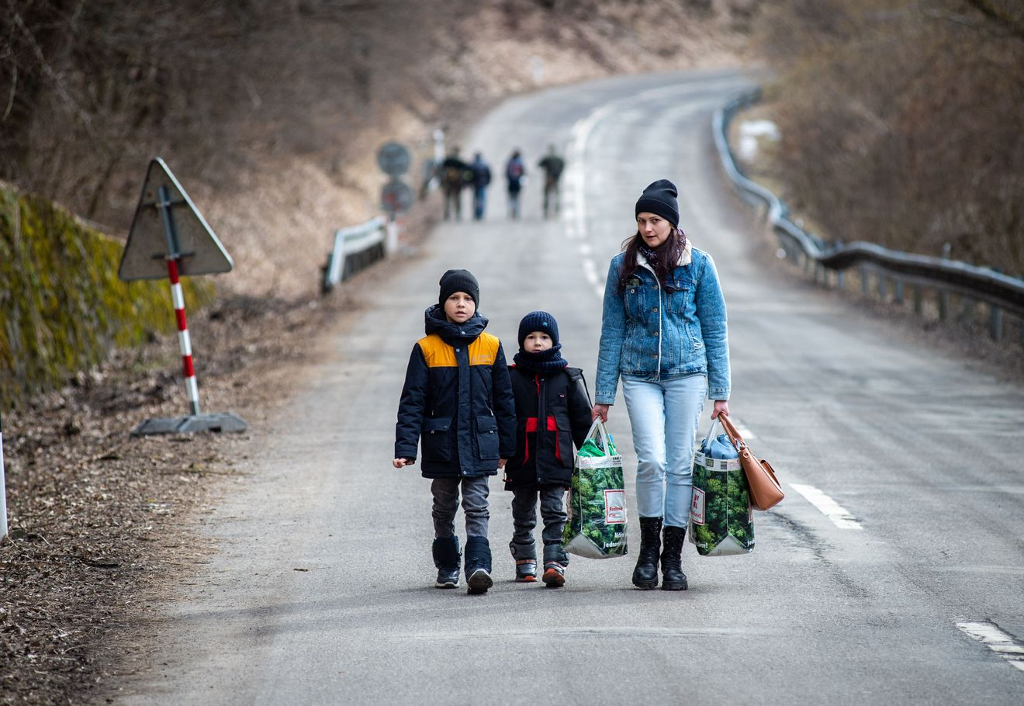
But a deeper look reveals a far more complex picture of refugee acceptance and rejection. For instance, while Ukrainians are a majority in Ukraine, Russians are 17 percent of the population. Ukraine has populations of Belarusians, Bulgarians, Hungarians, and Poles. The country also has a small Jewish population and a population of Crimean Tartars who are Muslims. It is home to a diverse Roma population, ranging between 200, 000 to 400, 000 people, 30,000 of whom remain undocumented.
Different Experience
In 2020, Ukraine was a host to more than 2,000 recognized refugees and persons who were granted relief from deportation – as well as nearly 2,300 asylum-seekers representing 60 countries. The International Organization for Migration estimated that there were between 37,700 and 60,900 migrants without regular legal status in the country. In addition, more than 76,000 foreign students from 155 countries were pursuing higher education.
Today, as many of these students, refugees, and migrants of color attempt to flee Ukraine, they are having significantly different experiences with Europe’s borders.
To them, merely looking different from the assumed expectation of what a European “looks” like has become a matter of life or death. These differentiated hierarchies will continue to define how those who consider Ukraine their home are welcomed or rejected in Europe.
Temporary Window
Research shows that the window of hospitality for refugees is temporary and can wane once a situation is protracted. Time will show how long Ukrainians who are currently considered “European” remain welcomed in Europe.
The current refugee crisis should force us all to admit what is painfully obvious: hierarchies and limitations of Western empathy are very real, but a different response to a refugee crisis — a response that is not based on skin color, faith, creed, or on militarized deterrence and violence — but based on welcoming humans in need of sanctuary with dignity is in fact possible.
Disclaimer: The views and opinions expressed here are those of the author and do not necessarily reflect the editorial position of The Globe Post.

